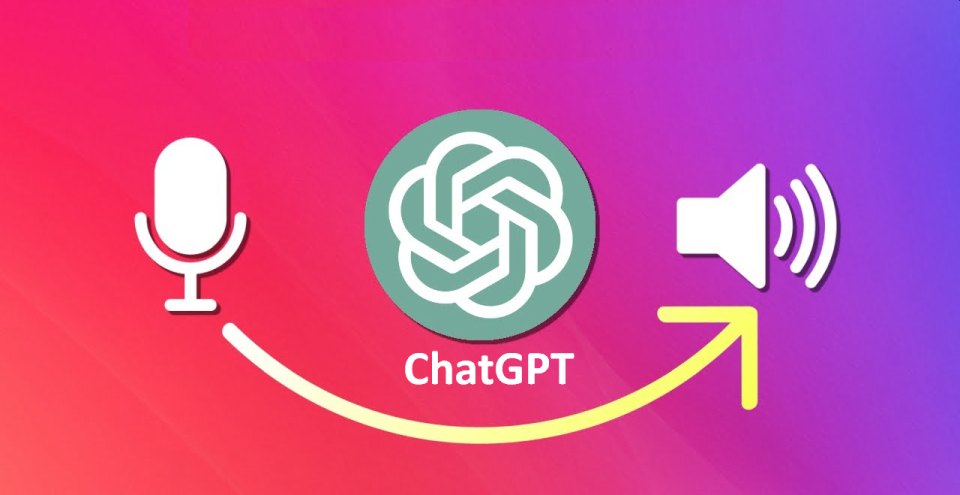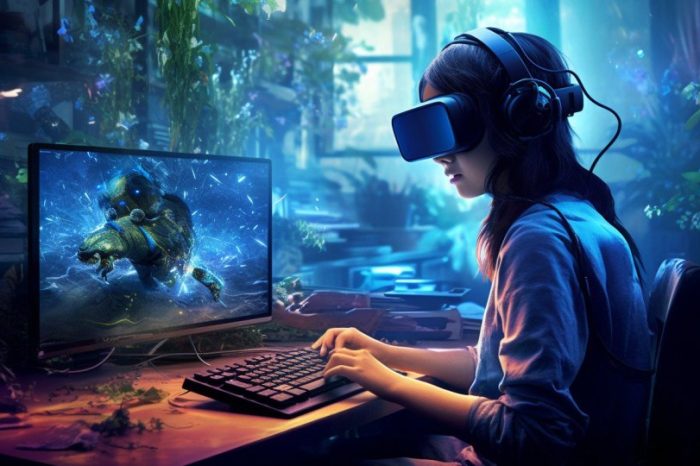ChatGPT can now see, hear, speak, and engage in voice conversations like Apple’s Siri

The AI race has reached a new level as OpenAI announced major enhancements to its widely-used chatbot. In a significant upcoming update scheduled for early next month, OpenAI revealed it’s rolling out a new set of voice and image capabilities for ChatGPT that can now see, see, hear, and speak.
This enhancement introduces a fresh and more user-friendly interface, empowering ChatGPT to engage in voice conversations with users and interact through images. The new capabilities also bring ChatGPT one step closer to the likes of well-known AI assistants such as Apple’s Siri.
The news comes less than a week after OpenAI announced the launch of Dall-E 3, its latest text-to-image generator that harnesses the capabilities of its wildly popular AI chatbot ChatGPT to help fill in prompts.
In a blog post today, OpenAI said: “We are beginning to roll out new voice and image capabilities in ChatGPT. They offer a new, more intuitive type of interface by allowing you to have a voice conversation or show ChatGPT what you’re talking about.”
The Microsoft-backed AI startup also took to social media to share the news of the launch. In a post on X (formerly Twitter), OpenAI wrote:
“ChatGPT can now see, hear, and speak. Rolling out over next two weeks, Plus users will be able to have voice conversations with ChatGPT (iOS & Android) and to include images in conversations (all platforms).”
ChatGPT can now see, hear, and speak. Rolling out over next two weeks, Plus users will be able to have voice conversations with ChatGPT (iOS & Android) and to include images in conversations (all platforms). https://t.co/uNZjgbR5Bm pic.twitter.com/paG0hMshXb
— OpenAI (@OpenAI) September 25, 2023
The new capabilities also position ChatGPT in the league of established AI assistants like Siri, Google’s voice assistant, and Amazon’s Alexa. These AI services are typically integrated with devices and are widely used for tasks like setting alarms, providing reminders, and fetching information from the internet.
ChatGPT, which gained prominence since its launch last year, has found adoption across various industries, including summarizing documents, coding assistance, and more. This has sparked a competitive race among major tech companies to introduce their own generative AI-based offerings. With the new voice feature, ChatGPT can narrate bedtime stories, resolve dinner table debates, and vocalize text input from users.
“The new voice technology—capable of crafting realistic synthetic voices from just a few seconds of real speech—opens doors to many creative and accessibility-focused applications. However, these capabilities also present new risks, such as the potential for malicious actors to impersonate public figures or commit fraud.”
As part of the announcement, OpenAI also revealed that the new technology is currently being used by Spotify to assist podcasters in translating their content into different languages.
“For example, Spotify is using the power of this technology for the pilot of their Voice Translation feature, which helps podcasters expand the reach of their storytelling by translating podcasts into additional languages in the podcasters’ own voices,” OpenAI said.
In addition to voice, ChatGPT now supports image input, enabling users to capture images of their surroundings and ask the chatbot for assistance with various tasks, such as troubleshooting a malfunctioning grill, planning meals based on fridge contents, or analyzing complex graphs for work-related data. Google Lens currently stands as a popular choice for gaining information from images.
These enhanced features will be rolled out to subscribers of ChatGPT’s Plus and Enterprise plans in the coming two weeks.
On November 30, 2022, OpenAI took the internet by storm after it released its dialogue-based AI chatbot called ChatGPT. The new chatbot-powered AI, which has been hailed as a potential game-changer in the world of AI, is a language model trained by OpenAI to interact with humans in a conversational way.
Just five days following its debut, ChatGPT achieved a milestone by surpassing one million users. To provide some context, it took well-established platforms like Netflix 3.5 years, Facebook 10 months, Spotify 5 months, and Instagram 2.5 months to reach the one million user mark.
OpenAI was established in late 2015 by visionary entrepreneurs Elon Musk and Sam Altman. It began as a for-profit startup dedicated to advancing research in artificial intelligence (AI) with a mission to foster and develop AI in a manner that benefits all of humanity. OpenAI’s unique approach involves fostering open collaboration by making its patents and research openly accessible to the public. Both of its founders are motivated, in part, by concerns surrounding existential risks associated with artificial general intelligence.




